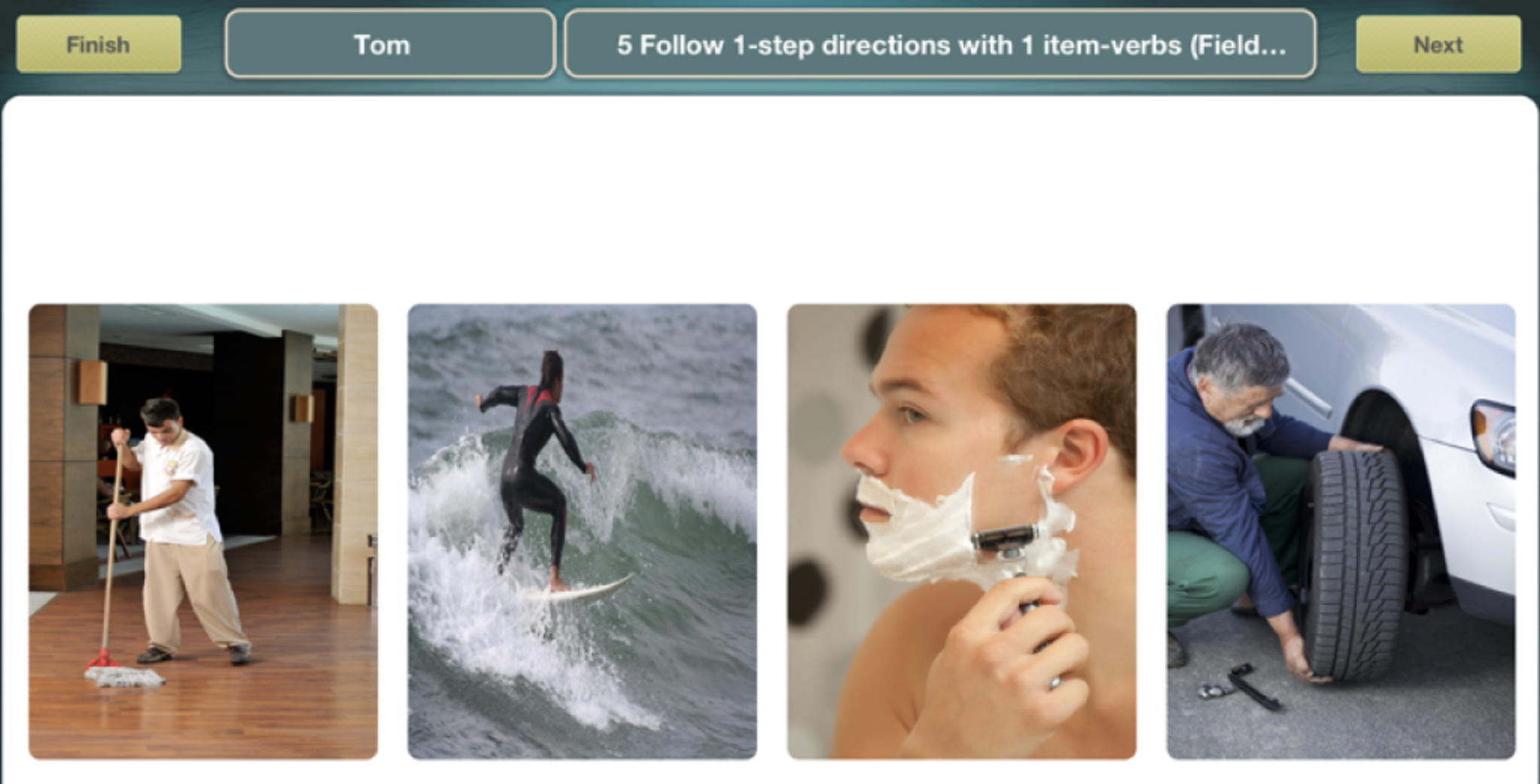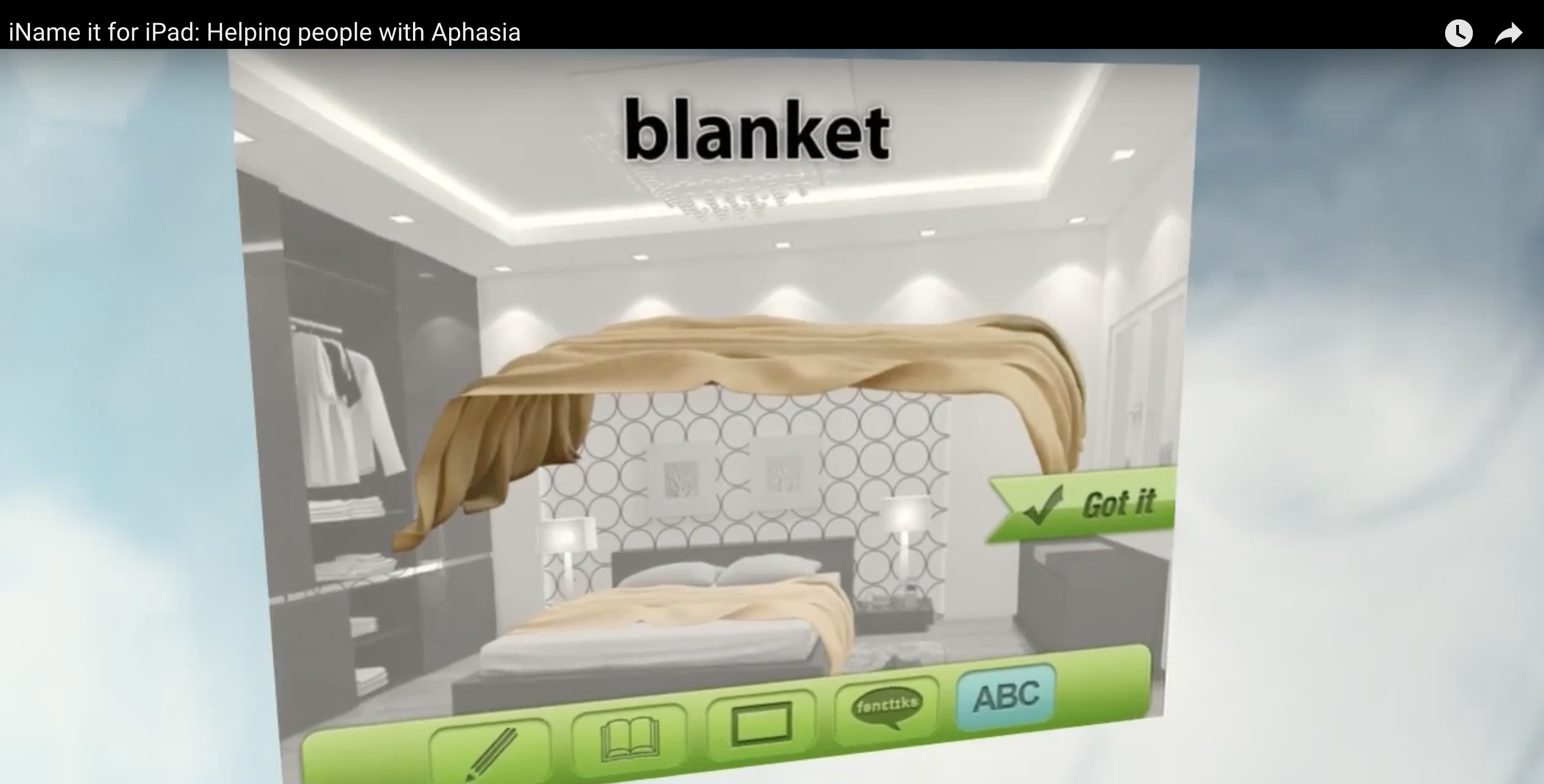Best apps for aphasia
Sarah Botterill | 03 Feb 2022
Stroke is the most common cause of aphasia.
People who are affected by aphasia, have trouble with the four main ways that we understand and use language, including reading, listening, speaking, typing or writing.
Aphasia can also affect the muscles in the face making it difficult for people to speak, and be understood.
There is a broad range of apps available for helping people to improve language, understanding, and also AAC (Augmentative and Alternative Communication) apps to help people communicate.
CommunicAide (Free)
This AAC (augmentative and alternative communication) app allows you to speak out words and phrases by pressing words and pictures.
It is available for iOS, Android, Mac and Windows.
Download CommunicAide
Discover our Don't Disable Me training course series that focuses on the lived experiences of people with disabilities including those who face visual, hearing and physical barriers. In the course, you can learn first hand how technology can support those facing these barriers at work, in study and day-to-day life.
The Comprehension Aphasia app ($19.99)
 This app from Virtual Speech Centre Inc. costs $19.99 and is available for iOS and Android. A certified speech and language pathologist designed the app to help adults and children with speech and language problems.
This app from Virtual Speech Centre Inc. costs $19.99 and is available for iOS and Android. A certified speech and language pathologist designed the app to help adults and children with speech and language problems.
The aim is to help people with auditory recognition using a series of simple yes/no questions.
Download The Comprehension Aphasia app for iOS
iName it
 This app is designed to help people who are struggling to recall the names of everyday household items. iName it was developed by a speech-language pathologist.
This app is designed to help people who are struggling to recall the names of everyday household items. iName it was developed by a speech-language pathologist.
Each of the 50 nouns is displayed in the room where you’d typically find it.
Download iName it for iOS
For more Aphasia apps The Tavistock Trust for Aphasia has built an online library
Lexico Cognition (Free)
Speech and language therapists designed Lexico Cognition. It aims to help develop language understanding, build vocabulary and cognitive and memory skills playfully.
The app includes games such as pairs and opposites.
Download Lexico Cognition for iOS
Learn how to check that your applications are accessible for all audiences in our training course.
My React2
React2 is a speech and language app to support people who have aphasia after a stroke or a brain injury or for others with communication disorders, or people living with dementia.
The app is designed to work on an individual basis, or if you are working with a professional. A speech therapist can set tasks for people to complete at home.
Download MyReact2 for iOS
SmallTalk Aphasia (Free)
This app is designed to give a voice to people struggling with aphasia. It allows users to carry with them commonly spoken words and phrases, and to practice frequently used words. There is a vocabulary of pictures and video that when you click on them, speak in a human voice.
The app comes with a so-called starter set of icons, but it’s possible to expand these if used with Lingraphica’s speech-generating device.
Download SmallTalk Aphasia for iOS
Thinking Time Pro (€5.49)
 Thinking Time Pro is a cognitive skill training app. Designed for children by Harvard and Berkeley neuroscientists, the app features four different scientific games.
Thinking Time Pro is a cognitive skill training app. Designed for children by Harvard and Berkeley neuroscientists, the app features four different scientific games.
The games aim to test - and develop - memory, logical reasoning, flexible thinking, attention and inhibitory control.
Tasks include sorting by colour and shape and repeating sequences.
Download Thinking Time Pro for iOS
How AbilityNet can help stroke survivors
AbilityNet has a range of products and services that can help you make tech more accessible including consultancy, design reviews, auditing and user testing.
AbilityNet provides a range of free services to help disabled people and older people.
Call our free Helpline. Our friendly, knowledgeable staff will discuss any kind of computer problem and do their best to come up with a solution. We’re open Monday to Friday from 9 am to 5 pm on 0800 269 545.
Arrange a home visit. We have a network of AbilityNet ITCanHelp volunteers who can help if you have technical issues with your computer systems. They can come to your home, or help you over the phone.
We have a range of factsheets which talk in detail about technology that might help you, which can be downloaded for free. You may find our factsheets talking about voice recognition and keyboard alternatives useful.
My Computer My Way. A free interactive guide to all the accessibility features built into current desktops, laptops, tablets and smartphones.
Related Factsheets from AbilityNet
- Read our Factsheet on Communication Aids
- Read our Factsheet on dementia and computing
- Read our Factsheet on learning difficulties and computing
Support for stroke survivors
Call the Stroke Association Helpline: 0303 3033 100
Connect to other stroke survivors and carers via My Stroke Guide
Search the stroke association for local support by postcode
Think Ahead Stroke: 01942 824888
Factsheets from the Stroke Association
- Read about anxiety and depression after a stroke
- Find out more about the physical effects of stroke



